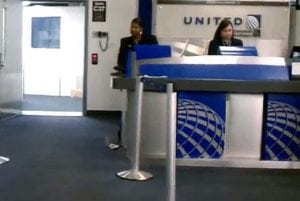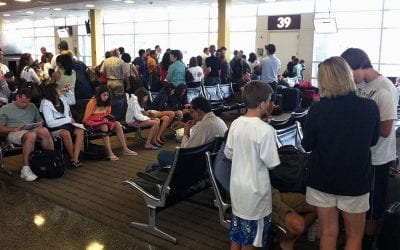Changing a return flight on a round-trip ticket can trigger massive additional costs.

Most network airlines have eliminated change fees for all but their least expensive tickets. When there are changes to basic economy tickets, the current standard is $250 or more. The fare difference between domestic and international flights will cost even more. My pet peeve is that these increased charges can be triple the original ticket price — literally.
There is no common sense in airline rules.
During the weather issues this last week across the US, a friend with Covid called and said that the cost to change their basic economy was more than the original basic economy airfare. A husband/wife duo was delayed because of Covid and had basic economy tickets. The airlines said that the increase in the price of the tickets would be $280. The original basic economy tickets cost only about $225. Changing the ticket would mean the flight would be on a day with balmy weather compared to tomorrow’s forecast. Plus, the airline would be free from the worry of the continuing pandemic spread.
This pair of travelers had already flown to south Florida and were returning home when the husband tested positive for Covid. It would have cost the airline nothing to change their ticket, but protocol prevailed. There is still no sick passenger rule, and passengers pay extra for changing a ticket because of a medical condition.
If passengers must change a flight before departure, that’s a different story.

When the passenger calls the airline, he will probably be told the entire ticket needs to be redone, thereby being forced to not only pay the change fee but a higher fare for the outbound flight as well, since the traveler would no longer have the benefit of advance-purchase on that flight.
On the other hand, if the passenger just purchases a new return flight, he simply pays the new one-way fare, which often is much less than the return domestic ticket.
Now, this approach has some caveats. First, the passenger or travel agent must cancel the original return. Airlines do not like double bookings; their reservation systems could cancel both.
Second, to do this legally, travelers should be using one-way fares. If the original ticket (normally international airline tickets) is based on a round-trip fare, and the traveler doesn’t fly the return but simply books another flight, the airline could demand a higher one-way fare retroactively. This is because airlines also do not like throwaway bookings, even unintentional.
Book the new return flight on a different airline in a different airline alliance.

United gate agents
Safer yet — if the passenger did book a ticket fare that requires a roundtrip, book any new return on a different airline. While airlines increasingly share data, choosing two different carriers will decrease the chance of getting caught.
For those asking, “How can you tell if a ticket is based on a round trip?,” the easiest way is to ask a travel agent or call an airline directly. (Sometimes there are clues in fare basis codes and ticket validity dates, but for those without a travel industry background, deciphering these clues can be challenging at best.)
Even when the ticket uses one-way fares, I recommend booking a new return on a separate record (PNR in airline jargon.) That way, it’s less confusing at check-in, and in case some overzealous computer or airline employee is looking for a violation of tariff rules, it’s a little less obvious.
Here is a recent example from just this past week:
- A client was looking for a return flight from Seattle to San Francisco one day later. Changing the whole ticket cost about $225. Buying a completely new return ticket, $89. There were similar savings for clients coming home from Dallas, Denver, and Washington, DC, a day earlier or later.
On short intra-state flights, it seems crazy to pay a $200 change fee when new tickets cost less than $100.
Travel agents can help.
A good travel agent should be able to see and offer these return flight choices. Booking online or through the airline requires a little more work. But it could be worth it.
Another frequent traveler I know recently mentioned paying over $1,000 to change a cheap cross-country domestic flight when he called the airline the weekend before he left. The reservation agent gave him a simple choice: take it or leave it. (In this situation, purchasing a new return flight would have been under $400.)
Simply canceling or changing a recent international flight from Washington, DC, to Barcelona, Spain, would have cost $350 in change fees. Fortunately, the airline changed the schedule, allowing the client to get their money back and rebook cheaper airfare on another flight to different destinations.

READ ALSO
Frustrated travelers start recording airline customer service phone calls. Does it work?
Mobility-Friendly Travel Guide from National Council on Aging
Janice Hough is a California-based travel agent a travel blogger and a part-time comedy writer. A frequent flier herself, she’s been doing battle with airlines, hotels, and other travel companies for over three decades. Besides writing for Travelers United, Janice has a humor blog at Leftcoastsportsbabe.com (Warning, the political and sports humor therein does not represent the views of anyone but herself.)



